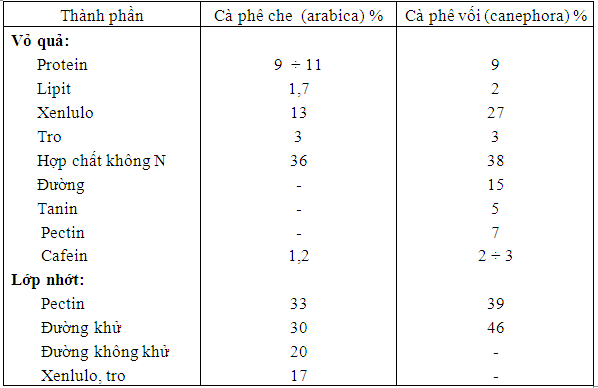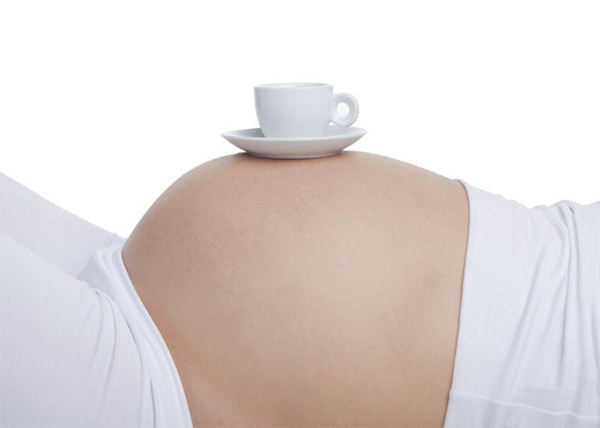Coffee is a favorite drink of many people around the world. An estimated 2.25 billion cups of coffee are consumed globally every day.
In coffee contains caffeine, in addition, coffee is also considered a drink with nutritional value because black coffee alone contains 12% lipid (fat), 12% protein (protein), 4% minerals, mostly potassium and magnesium…

In pharmacology, caffeine is a drug with a stimulating effect on circulation and respiration, a mild diuretic, can be used to support the heart or help ease breathing. Caffeine is also commonly used in combination in many cold and fever medicines such as Excedrin, Midol, Anacin to relieve pain, reduce fatigue ...
Therefore, coffee is as good for health as mental alertness. Drinking coffee and other caffeinated beverages increases alertness and makes thinking more efficient. In addition, the presence of caffeine in coffee is a substance that stimulates the central nervous system, making you awake, stimulating the ability to work, especially working with the mind, enhancing muscle activity.
So, after drinking a cup of coffee in the morning, we will feel excited to start work. As well as to cope with sleepiness when working at night, a strong black coffee is considered an effective measure.

Other soft drinks such as carbonated soft drinks (coca-cola, energy drinks) contain caffeine. Caffeine is also used as a specific medicine for many cold and pain medicines to enhance the analgesic effect of paracetamol, aspirin or reduce the drowsiness side effects of allergy drugs...
However, the coffee is not quite as good as we think. Indeed, caffeine has effects on the central nervous system and also on the functioning of the cardiovascular system. Therefore, there are some people when drinking coffee will experience heart palpitations, headaches, shaking hands, feeling insecure.
Harmful effects of caffeine in coffee has effects on the central nervous system and also the functioning of the cardiovascular system. People with cardiovascular disorders or caffeine intolerance should not drink coffee.
Caffeine has a diuretic effect, so it is important to avoid drinking coffee at night to avoid insomnia. Caffeine has a stimulating effect that increases gastric acid secretion, so avoid drinking coffee on an empty stomach. People who have weak stomach if drinking coffee on an empty stomach will be harmful to the stomach lining.
Some people only drink coffee in the morning without breakfast, very harmful to health, need to quit this habit. Caffeine can interact with some medications, such as reducing the sedative effects of sedatives that cause sleep. Therefore, it is advisable to avoid drinking coffee with drugs.

Although coffee offers many health benefits, if consumed in excess can leave negative effects. For example, coffee contains caffeine which can cause insomnia, nervousness and restlessness. Drinking a lot of coffee promotes increased production of stress hormones like cortisol, epinephrine and norepinephrine. These chemicals increase heart rate, blood pressure, and stress.
Consuming caffeine can increase blood pressure in people who already have high blood pressure. Many acids found in coffee beans can irritate the stomach and the lining of the small intestine. Drinking coffee on an empty stomach can stimulate the stomach to increase acid secretion.
Drinking coffee can also irritate the lining of the small intestine, causing diarrhea, irritable bowel syndrome. Acid reflux and heartburn can be caused by coffee because it relaxes the lower esophageal sphincter (these sphincters close after we eat to prevent food and stomach acid from regurgitating). up the esophagus).
Drinking unfiltered coffee can raise blood cholesterol. This can increase your risk of developing heart disease. There is some concern that drinking more than 5 cups of coffee a day may not be safe for people with heart disease. For people without heart disease, drinking several cups a day does not seem to increase the risk of developing heart disease.
Coffee is probably safe for pregnant women if they drink 2 cups of coffee a day or less. However, drinking more can increase the risk of miscarriage, premature birth, and low birth weight babies. Drinking 1 or 2 cups of coffee a day is safe for nursing mothers and infants, but caffeine in large amounts can irritate the gastrointestinal tract, cause sleep problems, and irritability. Coffee is not safe for children. Side effects associated with caffeine are usually more severe in children than adults.

Drinking caffeinated coffee can increase the amount of calcium that is passed out in the urine, in other words, the presence of coffee will prevent the absorption of calcium in the intestines. This can weaken bones. If you have osteoporosis, limit caffeine consumption to less than 300mg per day (about 2-3 cups of coffee).
In general, coffee is a popular, preferred drink. Therefore, it is not necessary to abstain completely. However, do not drink more than 2 cups of coffee per day. It can be taken early in the morning or before exercise.
Do not drink immediately before entering the exam room or going to the interview. Should not be taken immediately after eating so as not to adversely affect digestion. Do not drink after 2 pm to avoid disturbing sleep. People who are prone to stress, premenopausal women, people with high blood pressure, and diabetes should choose decaffeinated coffee.
(Collect)
